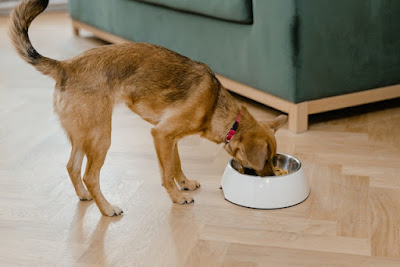Safe and Toxic Foods: What Human Foods Pets Can and Can't Eat
Table of Contents
·
Safe
Human Foods for Pets
·
Toxic
and Unsafe Foods
·
Xylitol
Toxicity
·
Preventing
Food Intolerance
·
Frequently
Asked Questions
Safe Human Foods for Pets
Here are some people foods that are
safe for dogs and cats in moderation:
·
Cooked,
lean meats - beef, chicken, turkey, pork
·
Fish
and shellfish - salmon, tuna, shrimp
·
Eggs
- scrambled or hard-boiled
·
Dairy
products - small amounts of cheese, plain yogurt
·
Grains
- oatmeal, brown rice, whole wheat pasta
·
Vegetables
- carrots, green beans, pumpkin
·
Fruits
- bananas, apples, watermelon
Check with your vet before
introducing new foods. Monitor for any signs of intolerance.
Toxic and Unsafe Foods
Here are some common human foods
that can be dangerous or even deadly for dogs and cats:
·
Chocolate
·
Coffee
and tea
·
Alcohol
·
Grapes
and raisins
·
Onions
and garlic
·
Xylitol
(artificial sweetener)
·
Macadamia
nuts
·
Raw
dough
·
Salt
and salty foods
Never intentionally feed pets any of
these. Keep dangerous foods secured and out of reach.
Xylitol Toxicity
The artificial sweetener xylitol is
extremely toxic to dogs:
·
Found
in gum, breath mints, baked goods, peanut butter
·
Can
cause life-threatening blood sugar crashes
·
Even
small ingestions require emergency vet care
Cats are also susceptible but less
sensitive. Avoid products containing xylitol in homes with pets.
Preventing Food Intolerance
When first introducing human foods,
only give in small amounts to reduce risk of intolerance:
·
Start
with teaspoon sized portions
·
Gradually
increase quantity over several days if no issues
·
Only
incorporate one new food at a time
·
Discontinue
any items that cause vomiting, diarrhea, or allergy symptoms
Work with your vet to add any
significant new foods into your pet's diet.
Frequently Asked Questions
Can
dogs eat apples?
Yes, dogs can eat small slices of
apples. Cut apples into bite-sized chunks and monitor dogs closely to prevent
choking.
What
dairy foods can cats have?
Small amounts of plain yogurt or
hard cheeses are safe options. But avoid milk, which can cause digestive upset.
Is
peanut butter ok for pets?
Look for xylitol-free brands only.
Give moderate portions, as peanut butter is high in fat.
Are
avocados safe for pets?
No, avocado fruit, pits, and leaves
contain persin toxin and should not be fed to dogs or cats.
Conclusion
Some human foods like lean meats,
dairy, grains and produce can be healthy treats. But keep portions small and
avoid toxic foods like chocolate, xylitol gum, coffee, and raw dough. Check
with your vet before introducing new foods. Careful monitoring helps prevent
adverse reactions.

